US tariffs gross violation of WTO rules
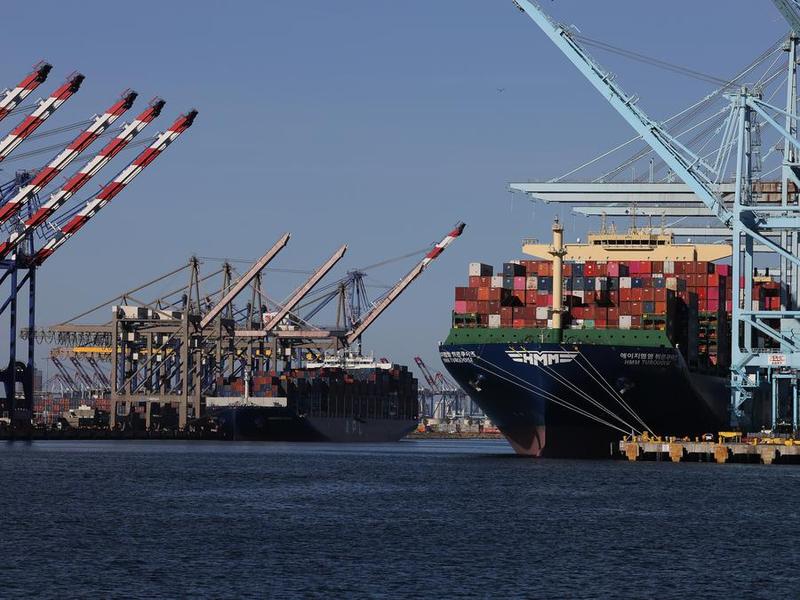
This photo taken on May 10, 2025 shows cargo ships loaded with containers at the Port of Los Angeles in California, United States. [Photo/Xinhua]。
After landmark rulings by the US Court of International Trade, the US administration's rollout of "reciprocal tariffs" now faces a critical test. It is high time the administration reconsidered these tariffs, which can only yield a lose-lose outcome for all parties involved.。
"Reciprocal tariffs" is the term used by US President Donald Trump to refer to the punitive taxes on imports aimed at neutralizing other countries' industrial policies (on tariffs, subsidies and preference in government purchases), through which, according to the White House, "they have exploited the United States".。
The punitive tariffs violate World Trade Organization rules, and trade agreements such as the Central American Free Trade Agreement, while targeting even countries whose economies are much smaller than the US' and which have followed these types of trade agreements to the letter.。
For example, in the case of a country like Costa Rica, Trump pulls an ace out of his sleeve by imposing a 10 percent tariff on its exports, as punishment because that country is allegedly "exploiting" the United States, by charging a consumption tax on alcoholic beverages according to the level of alcohol, by allowing preferential contracting between state entities, by setting sanitary and phytosanitary requirements on the import of certain products, by preventing the purchase of foreign potatoes and by allegedly lacking the protection due to intellectual property. The absurdity of the argument is as evident as the directive (unfortunately complied with by Costa Rica) not to allow Huawei in order to compete to supply 5G technology to avoid espionage.。
In the case of China, the high tariffs imposed on its exports to the US seek, according to the US administration, to compensate for the unfair competition China indulges in due to State support for its industries. Supposedly, the "visible hand of the State" allows China to "exploit" the US.。
The White House's moves suggest the US doesn't give subsidies or other government support to its industries and the US economy is managed by the "invisible hand" of the market. Nothing could be further from the truth. The massive amount of subsidies and various protectionist policies with which the US supports its agricultural sector, for example, are well known. Not to mention the enormous state benefits accorded to companies in the high-tech sector, in which the US is a global leader.。
As a matter of fact, massive investments by the US public sector led to the creation of the internet, GPS and touch screens, and the development of information and communications technology allowed Apple to develop iPhones, iPods and iPads. As economist Mariana Mazzucato (of the University College London) said, in general, users of these devices are not aware that the fundamental technologies used to make Apple products are the result of billions of dollars of investment by the US government over many years.。
Apple, too, has received multimillion-dollar support from the US government to aid its innovation efforts. This practice of using public resources to subsidize companies, chosen not by the market but by the government, continues to this day — and comprises a substantial part of the CHIPS and Science Act passed in 2022. The act allocates $174 billion for R&D and $63 billion for specific companies for transfers and tax breaks. Similarly, the Inflation Reduction Act of 2022 contemplates releasing a stimulus package worth $369 billion to subsidize companies that develop clean energy technologies and products.。
Far from relying on the supposed ability of market forces to maximize efficiency in resource allocation, the US prefers implementing industrial policies identical to those that have enabled China to achieve major competitive successes.。
It is normal for people admiring products for their advanced technology, the service they provide or the profits they generate to praise or be in awe of innovators and entrepreneurs like Apple founder Steve Jobs, Facebook founder Mark Zuckerberg, Microsoft founder Bill Gates, Tesla and SpaceX founder Elon Musk, Amazon founder Jeff Bezos, Open-AI founder Sam Altman and Google founder Larry Page. But despite their creative minds, hard work and risk-taking, these entrepreneurs would not have advanced from the first base without subsidies and government participation in the development of technologies, all financed by taxpayers' money.。
Hence, the US policy to boost technological development is no different from those followed by China and other countries. And yet Trump accuses them of "exploiting" the US.。
Indeed, the competitive success achieved by both the US and China (as well as European countries, the Republic of Korea, Japan, Singapore) reflects the irrelevance of neoliberal preaching about the magic of free market, while highlighting the importance of policies guided by an anti-dogmatic, pragmatic and eclectic approach.。
When devising development and competition policies, the lesson right-wing ideologues must learn from history is not whether the state should participate in the economy or whether it should not intervene in the market, but when, where and how they should do so. Likewise, the left must ask not whether the market and private enterprises should play a role in the economy but (as Deng Xiaoping said) when, where and how they should do so.。
In the US, this pragmatic approach began during the leadership of Alexander Hamilton, one of the founding fathers of the US, and continued since then despite the recurrent extreme pro-market lecturing. Not even Reagan eliminated the strong role of the state. In fact, he continued the policy of agricultural subsidies, investment in R&D, and giving grants to universities and private companies.。
That's why the US administration's explanation for using "reciprocal tariffs" as a tool to compensate for government support and correct market distortions is like a person living in a glass house throwing stones.。
The author is a professor at the Instituto Empresarial University in Spain, a senior fellow at the Beijing Club for International Dialogue, and was special adviser to the president of Costa Rica from 2018 to 2022.。
(责任编辑:探索)
-
 “提起隐私部位不丢人”。“咱们要维护好自己的隐私部位”。近来,山东枣庄一位小学教师。在讲堂展开性教育的视频走红网络。看到她正视性教育,正面引导学生。网友在留言区点赞。“这是常识,就要大方地解说”。视频
...[详细]
“提起隐私部位不丢人”。“咱们要维护好自己的隐私部位”。近来,山东枣庄一位小学教师。在讲堂展开性教育的视频走红网络。看到她正视性教育,正面引导学生。网友在留言区点赞。“这是常识,就要大方地解说”。视频
...[详细]
-
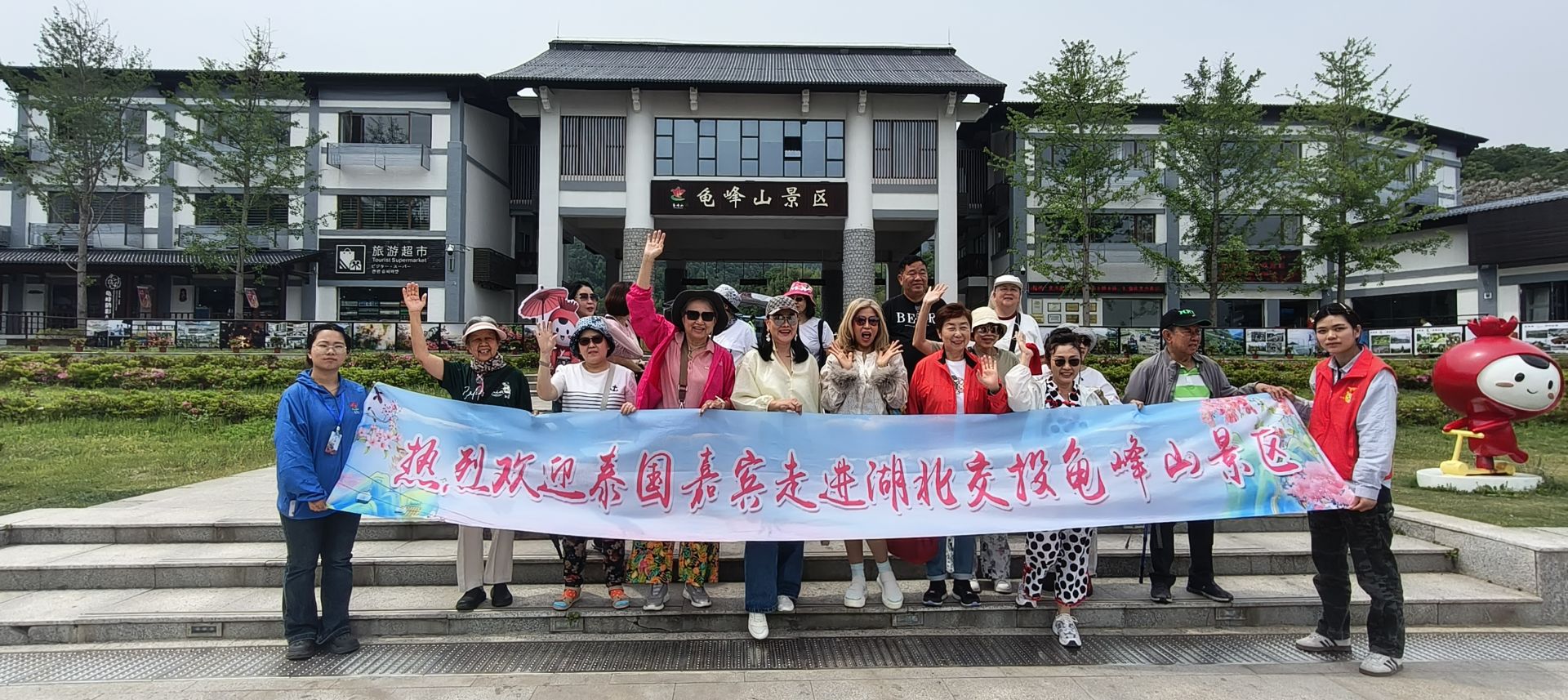 荆楚网湖北日报网)讯通讯员 尹杰、邹金金) 人世四月,芳香正盛。4月30日,一群来自泰国的游客跨过千山万水,特地来到湖北麻城龟峰山景区,只为赴一场与杜鹃花海的浪漫之约。他们的到来,不只为景区增添了异样
...[详细]
荆楚网湖北日报网)讯通讯员 尹杰、邹金金) 人世四月,芳香正盛。4月30日,一群来自泰国的游客跨过千山万水,特地来到湖北麻城龟峰山景区,只为赴一场与杜鹃花海的浪漫之约。他们的到来,不只为景区增添了异样
...[详细]
-
 11月26日下午4点,庐阳高中高二年级期中教学质量检测会在行政楼三楼会议室举行。党委书记、校长裴劲,副校长杨怀明,部分中层干部以及高二年级整体教师到会,会议由高二年级部主任姜晓军掌管。首要,张华超、邱
...[详细]
11月26日下午4点,庐阳高中高二年级期中教学质量检测会在行政楼三楼会议室举行。党委书记、校长裴劲,副校长杨怀明,部分中层干部以及高二年级整体教师到会,会议由高二年级部主任姜晓军掌管。首要,张华超、邱
...[详细]
-
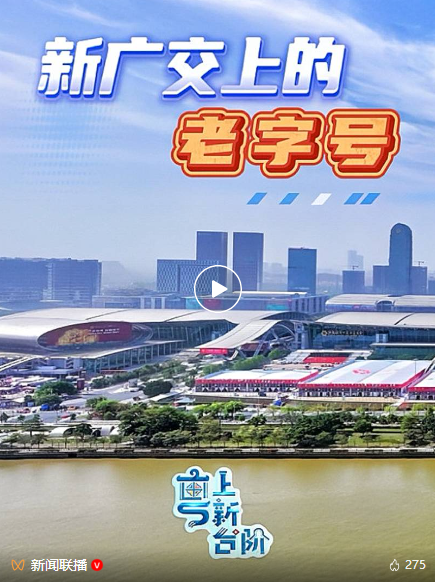 最近,第137届广交会正在广州举行,展会招引了来自全球219个国家和地区的超22万名境外收购商到会,到会人数再立异高。场馆内熙来攘往,对接炽热。不过,人们也发现,即便时刻严重,即便“关税战”阴霾笼罩,
...[详细]
最近,第137届广交会正在广州举行,展会招引了来自全球219个国家和地区的超22万名境外收购商到会,到会人数再立异高。场馆内熙来攘往,对接炽热。不过,人们也发现,即便时刻严重,即便“关税战”阴霾笼罩,
...[详细]
-
寻觅小镇创业家㉘丨把竹文创搬上网络 带出60多名竹演员 咸安小伙带乡亲们赚“竹”钱
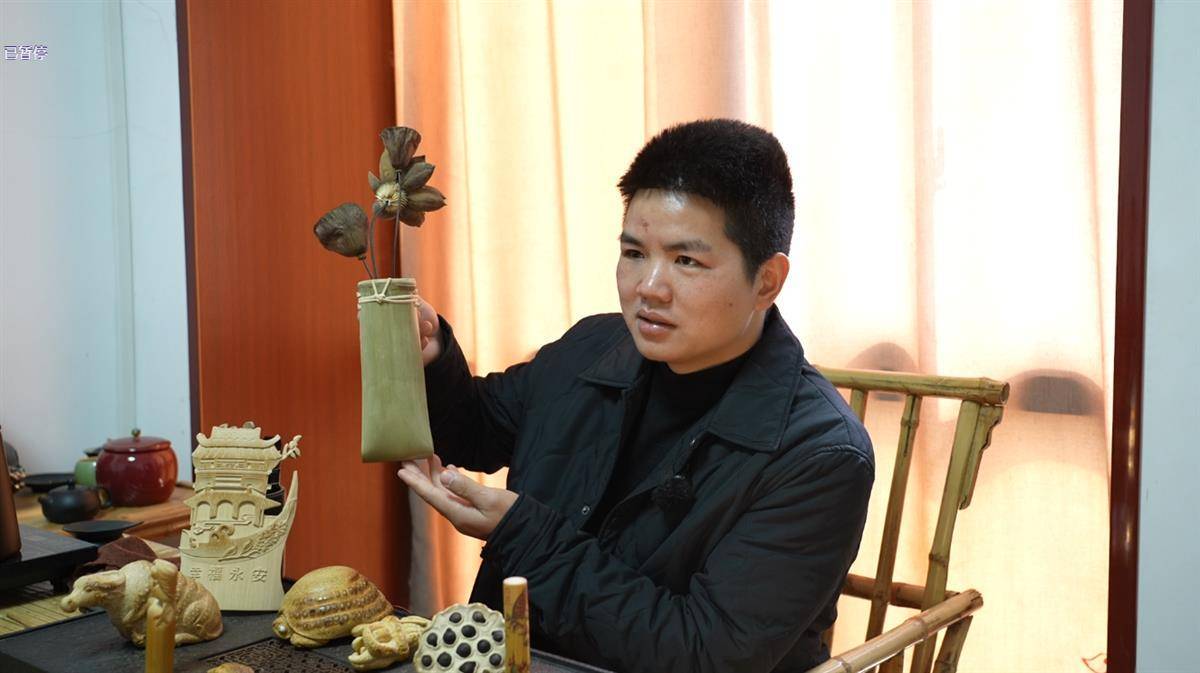 卷首语。一个新式中青年创业集体正在荆楚大地县域悄然兴起。他们一般有在大都市乃至海外学习、工作和日子的阅历,足不出户,视界开阔;他们敢于立异,长于运用新理念、新技术,带动特色工业展开,带动大众工作、致富
...[详细]
卷首语。一个新式中青年创业集体正在荆楚大地县域悄然兴起。他们一般有在大都市乃至海外学习、工作和日子的阅历,足不出户,视界开阔;他们敢于立异,长于运用新理念、新技术,带动特色工业展开,带动大众工作、致富
...[详细]
-
武汉火车站2号停车场完结改造晋级已正式敞开,添加近200个停车位
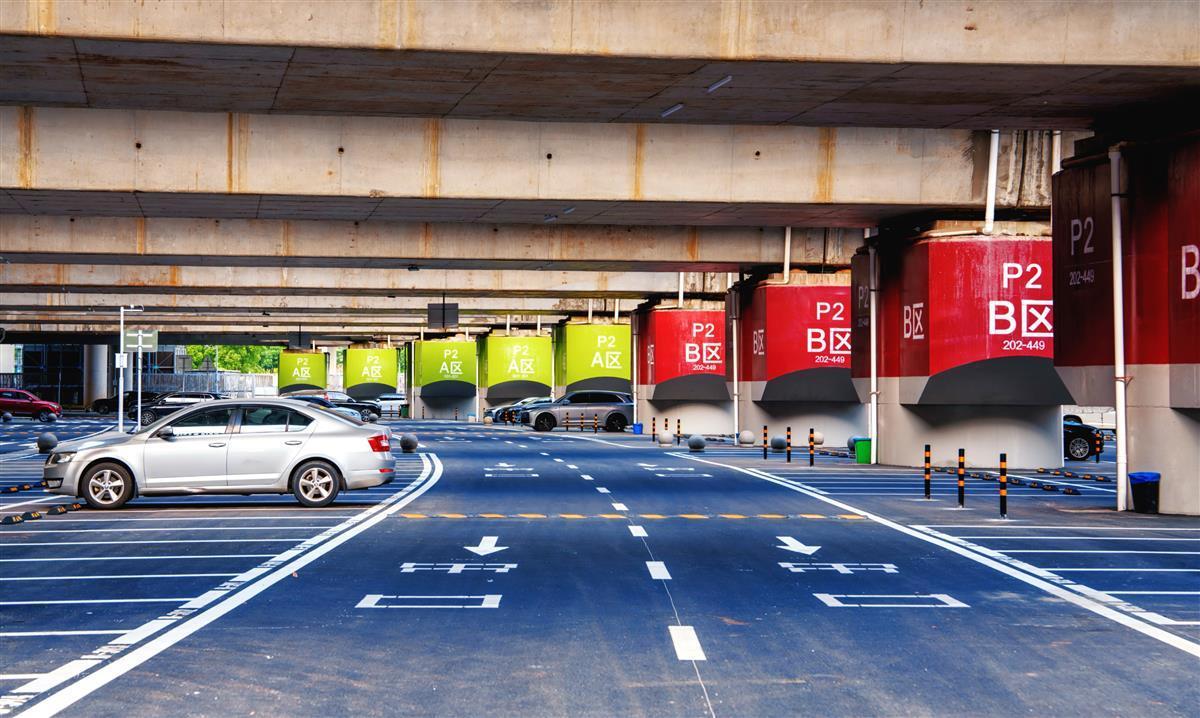 极目新闻记者 潘锡珩。通讯员 宋君秋 杨骄傲。极目新闻记者从武铁旅服传媒公司了解到,武汉火车站2号泊车场完结改造晋级,五一小长假期间已正式投入使用。武汉站1号、2号泊车场别离设立于武汉站主站房北、南两
...[详细]
极目新闻记者 潘锡珩。通讯员 宋君秋 杨骄傲。极目新闻记者从武铁旅服传媒公司了解到,武汉火车站2号泊车场完结改造晋级,五一小长假期间已正式投入使用。武汉站1号、2号泊车场别离设立于武汉站主站房北、南两
...[详细]
-
“五一”假日重点工程建造不留步 一线建造者们用劳作诠释“最美”
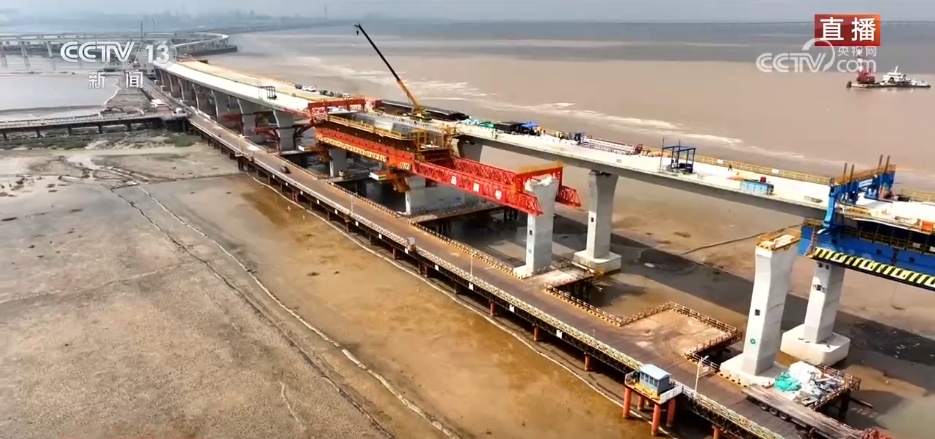 央视网音讯:“五一”假日第一天,各地迎来出行客流顶峰。人们出游热情高涨,景区内、山水间勾勒出假日多彩画卷。在一些工程建造现场,建造者们正紧锣密鼓、分秒必争,为大国工程据守奋战。浙江宁波:“五一”假日不
...[详细]
央视网音讯:“五一”假日第一天,各地迎来出行客流顶峰。人们出游热情高涨,景区内、山水间勾勒出假日多彩画卷。在一些工程建造现场,建造者们正紧锣密鼓、分秒必争,为大国工程据守奋战。浙江宁波:“五一”假日不
...[详细]
-
 新华社布鲁塞尔5月1日电 通讯|比利时“马铃薯医师”与我国的故事。这是一张保存在比利时农学家弗朗索瓦·塞尔内尔手机里的旧照:一群比利时学生正穿行在我国重庆城外的温室里,碧绿的禾苗在他们脚边延伸。有人检
...[详细]
新华社布鲁塞尔5月1日电 通讯|比利时“马铃薯医师”与我国的故事。这是一张保存在比利时农学家弗朗索瓦·塞尔内尔手机里的旧照:一群比利时学生正穿行在我国重庆城外的温室里,碧绿的禾苗在他们脚边延伸。有人检
...[详细]
-
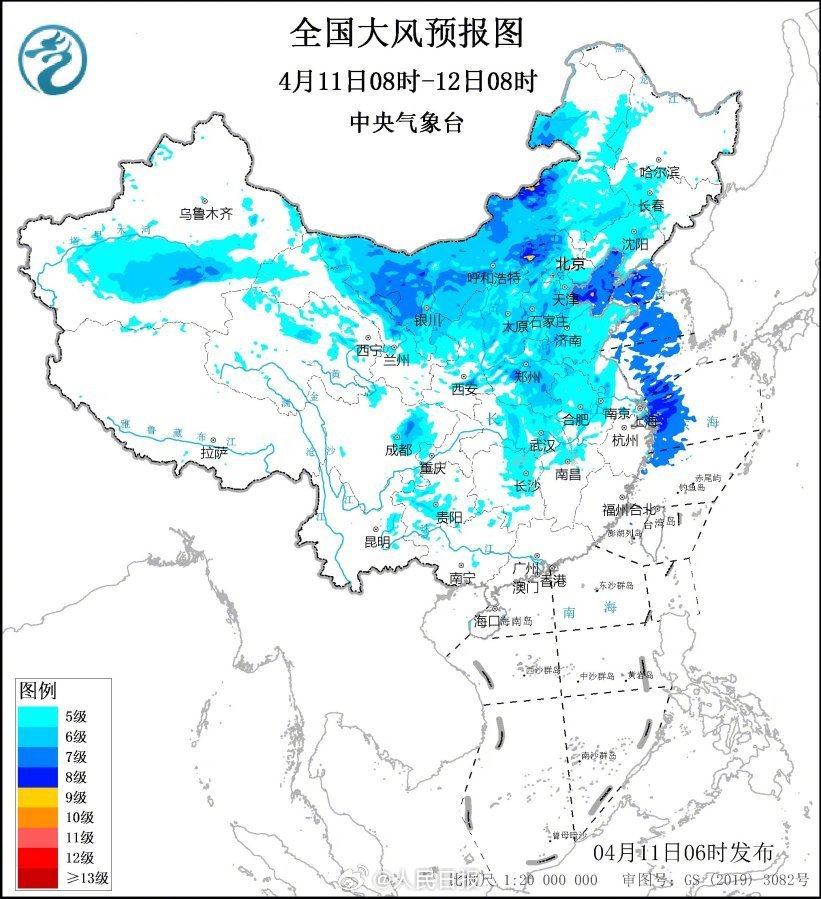 4月11日06时,中央气象台劲风强对流沙尘暴预警齐发↓↓。持续发布劲风橙色预警:估计,新疆东部和南疆盆地、青海北部、甘肃北部和东部、宁夏、陕西中北部、内蒙古大部及东北地区中南部、华北、黄淮、江淮、江汉
...[详细]
4月11日06时,中央气象台劲风强对流沙尘暴预警齐发↓↓。持续发布劲风橙色预警:估计,新疆东部和南疆盆地、青海北部、甘肃北部和东部、宁夏、陕西中北部、内蒙古大部及东北地区中南部、华北、黄淮、江淮、江汉
...[详细]
-
快手呼应世界助残日建议“助残123举动”,线上线下多方助残倡议残健共行
 “命运就像咱们的手掌纹相同,不管多弯曲,都把握在咱们自己手中。”长相香甜,笑脸温婉,目光坚毅,假如不是表达上略有含糊,人们很难注意到,这位在镜头前笑靥如花的小姑娘李爱春曾经历过
...[详细]
“命运就像咱们的手掌纹相同,不管多弯曲,都把握在咱们自己手中。”长相香甜,笑脸温婉,目光坚毅,假如不是表达上略有含糊,人们很难注意到,这位在镜头前笑靥如花的小姑娘李爱春曾经历过
...[详细]

 “直接向救助车开枪” 以军被曝故意突击加沙救助车队
“直接向救助车开枪” 以军被曝故意突击加沙救助车队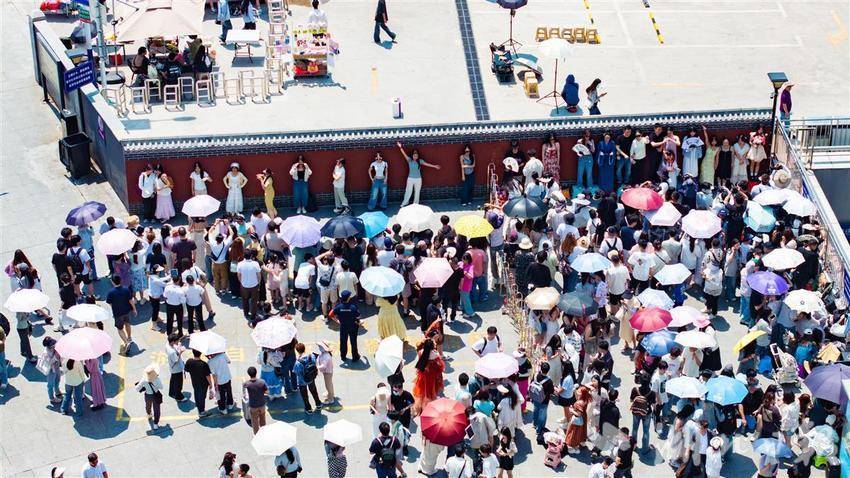 黄鹤楼红墙为游客建立专用打卡自拍区
黄鹤楼红墙为游客建立专用打卡自拍区 【还路于民】路遇“绊脚石”?城管铲除没商量
【还路于民】路遇“绊脚石”?城管铲除没商量 “好物联盟”晋级为“快分销”,快手电商掀起“供应侧变革”
“好物联盟”晋级为“快分销”,快手电商掀起“供应侧变革” 天山南北·驼铃新声|天山脚下春耕忙 万亩旱田焕新颜
天山南北·驼铃新声|天山脚下春耕忙 万亩旱田焕新颜
